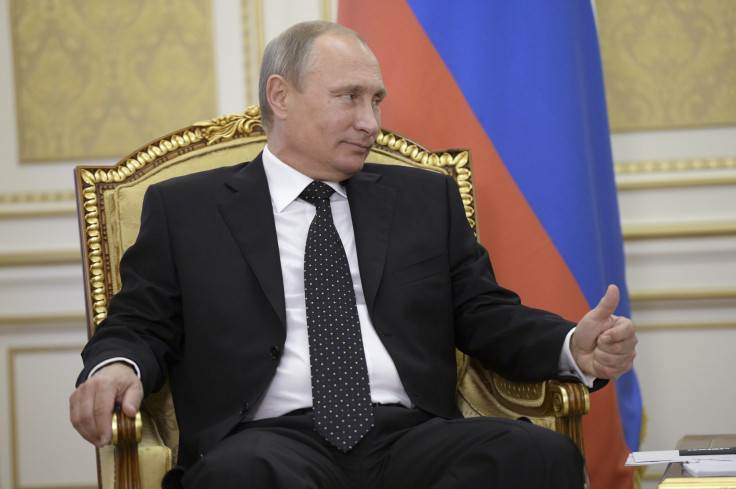Russia Investigating Better Cybersecurity, Not Internet 'Kill Switch,' Putin Says

Russian President Vladimir Putin said Wednesday he is not considering plans to restrict Internet access for Russian users but warned that the Kremlin will protect itself after a sharp rise in cyber-attacks since the beginning of the Ukrainian unrest. Putin’s remarks come one week after reports that the Kremlin was investigating the plausibility of an Internet “kill switch” to pull in times of national emergency.
Putin, speaking at a meeting of his presidential Security Council, said he is “not even considering” restrictive measures, as they would undermine the principles of a basic democracy. Vedomosti, a Russian business daily, previously quoted sources who said “Russian Internet service providers will be required to make it possible to shut off Russia’s Internet access to the global Internet” during “military actions” or “serious protest actions.”
He also explained that the Kremlin would seek to “developer and implement a range of additional measures in the area of information security.” The Russian Internet, better known as the RuNet, has been the focus of cyber-attacks from all over the world and networks, particularly government networks, must do better to protect themselves.
“Our corresponding departments are registering the constant growth of Web attack on Russian information resources and in the course of the past half a year, the number of attacks grew,” he went on, as quoted by Russia’s ITAR TASS news agency. “This is simply incomparable with last year…The intensity (of attacks) directly depends on the current international situation.”
While Putin denied details included in the Vedomosti report, he did address some of the international tension that fueled the reported kill switch conversations. He referenced the U.S. National Security Agency revelations that have so infuriated Russia. American leaders have maintained that the surveillance is legal with the justification that, if a social network’s servers are located on U.S. soil, the information that passes through is American property.
“We see that certain countries are trying to use their dominating position in the global information space to achieve not only economic, but also military and political goals,” Putin added.
© Copyright IBTimes 2024. All rights reserved.











